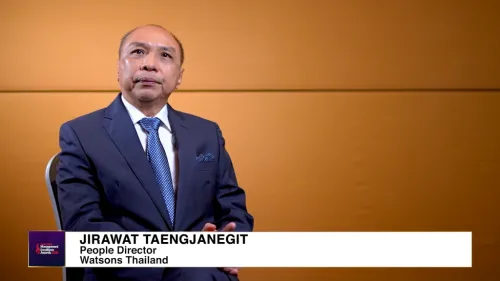
Crash ahead? Residential sales to take a hit from banks’ increased fixed-rate home loans
Home loan rates now range from 2.75% p.a. to 3.08% p.a.
Rising interest rates was amongst factors that led to the crash of home sales in June (-64% MoM). This is why the news of banks increasing their fixed-rate home loans—or worse, suspending them—has raised red flags, especially since the market had just gotten out of its “state of pause” when cooling measures were implemented in December 2021.
The suspension of such loans will likely dampen the sales volume and prices for residential homes in Singapore, Colliers' Director and Head of Research Catherine He told Singapore Business Review.
Amongst segments, the impact on volume will be felt the most in the Outside Central Region (OCR) as buyers in this area are "more price sensitive."
"The affordability threshold for middle income owners, especially those holding multiple properties, are likely to be more affected," OrangeTee's Senior Vice President of Research & Analytics Christine Sun said.
If interest rates rise above 3%, homeowners’ monthly installments may rise faster than their monthly rental income especially since they are not able to revise the rental rates whilst the contract is still in force, Sun added.
"Interest rates for floating rate is still about 1.5% whilst fixed is just above 2%. As total debt servicing ratio uses 3.5% interest rate for the calculation, most people should still be able to service their loan when interest rates stay below 3.5%," explained Sun.
Unlike price sensitive and risk averse buyers, the suspension will not likely affect those who have "a more comfortable financial buffer—they are likely to still proceed with their purchase as floating rates are usually lower than fixed rates," according to He.
There are also many buyers who are "trying to lock in the lower interest rates now."
"Those who are keen to purchase a new home over the next six months are likely to continue with their property purchase," Sun said.
PropNex Realty's Head of Research and Content, Wong Siew Ying, echoed this saying that individuals "with genuine housing need to continue to transact."
"That said, homebuyers largely remain price sensitive and some of them may adjust their requirements—e.g. location, size of unit—to keep overall price quantum manageable, amidst rising home financing cost," Wong added.
In terms of prices, Colliers' He said the Rest of Central Region (RCR) will be the most affected.
"Prices in the RCR are likely to correct due to the sharp rise over the past few quarters," He explained.
No major impact for now
Whilst the suspension is expected to dampen the residential market in the future, Huttons and OrangeTee said current situation suggests that the move does not have a major impact in both HDB and private residential market.
Huttons Asia's Senior Director of Research Lee Sze Teck said most buyers opt for floating rate loans when they purchase properties which is why the suspension has no noticeable impact in the market.
Sun said the buyers take floating rates as these are much lower than fixed rates.
Other options
"Buyers can opt for a three-month SORA (Singapore Overnight Rate Average) based loan which has an interest of around 1.5% which is much lower than a fixed rate loan interest of 2.6%. For HDB buyers, the current loan from HDB is fixed at a rate of 2.6% as well," Lee said.
"Loans for buildings under construction are under SORA. Buyers will still enjoy the low rates of around 1.5%. For HDB buyers, similarly they will enjoy lower rates if they choose a SORA based loan," Lee added.
HDB flat buyers can also opt for a housing loan from the HDB which has a concessionary interest rate that is pegged at 0.10% above the prevailing Central Provident Fund (CPF) Ordinary Account interest rate—at 2.60% per annum (p.a.) presently, said Wong.
"DBS Bank also has an HDB Exclusive Package offering five-year fixed at 2.05% p.a," Wong added.
To identify which home loan package best suits their needs amidst rising interest rate environment, Wong advised home buyers to assess their financial circumstances carefully and work with banks.
"Also, have some funds set aside for any unforeseen events or further increase in interest rates in the future," Wong said, adding that buyers may also choose to tap their CPF monies to help finance the home purchase.
Current bank rates
For those who can still afford to opt for a fixed-rate home loan package, OCBC currently has the highest interest rate of 2.98%. The bank’s new rate was implemented in July.
Maryanne Phua, Head of Home Loans at OCBC Bank told Singapore Business Review that they review their mortgage pricing regularly to ensure that their packages remain competitive.
“As interest rates are now on the increasing trend, we advise consumers to review their affordability before committing to their home purchase,” Phua said.
DBS and UOB also revised their rates to 2.75% and 3.08% p.a., respectively.
Jacquelyn Tan, Head of Group Personal Financial Services at UOB said this was a response to the market conditions as they review their “home loan packages to ensure they remain competitive and that they meet the needs of homeowners.”
“Even with the rising interest rate environment that we are currently in, we still offer fixed rates for customers who want to lock in rates for longer-term,” Tan said.
Some banks are not just increasing their interest rates but removing the option to avail of fixed-rate home loans entirely. In April, reports said banks like Standard Chartered and Maybank ceased offering fixed-rate home loans.
“Yes, we are still placing our current focus on offering floating-rate packages only,” Standard Chartered told Singapore Business Review in an email for comment.
This move by the banks may have been the direct effect of the United States Federal Reserve increasing its benchmark interest by 0.75%, the biggest increase since 1994. Meanwhile, another increase is looming in July with Fed Governor Christopher Waller saying that he is supporting another 75 basis point increase in the month.
Looking ahead, Jefferies’ Equity Analyst, Krishna Guha, predicts that the increase or decrease in mortgage rates will heavily depend on the trajectory of the funding cost.
“We have sensitivity to rising rates on mortgage payments. Assuming a 100 bps increase in mortgage rate, mortgage payment goes up by about 11%. This is for a $1m mortgage loan of 25 years. We don’t have a forecast of dollar interest rates. Our house view of Fed Funds rates is for another 75 bps hike in July, followed by two 50 bps hikes in September and November, and three 25 bps hikes in the subsequent meetings,” Guha said.



















 Advertise
Advertise








